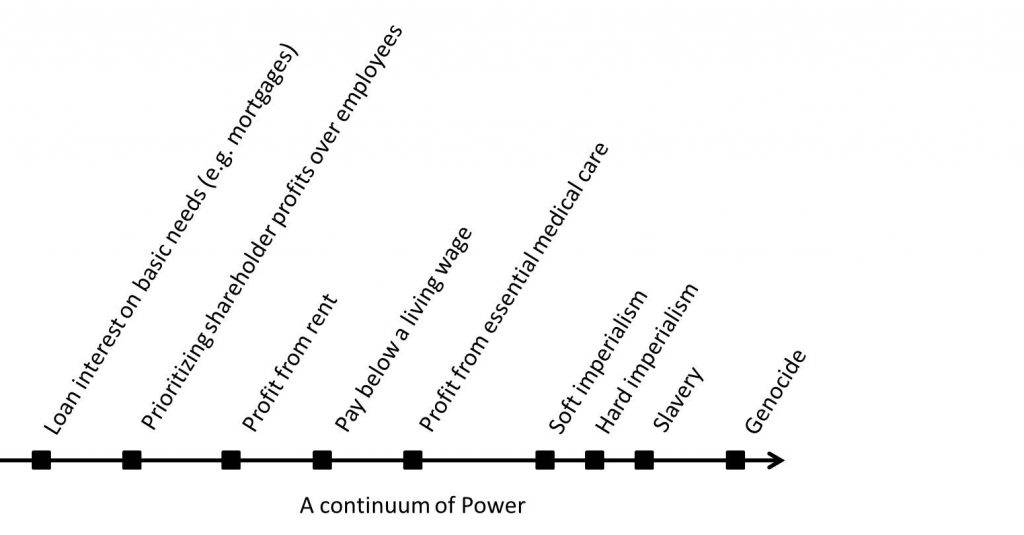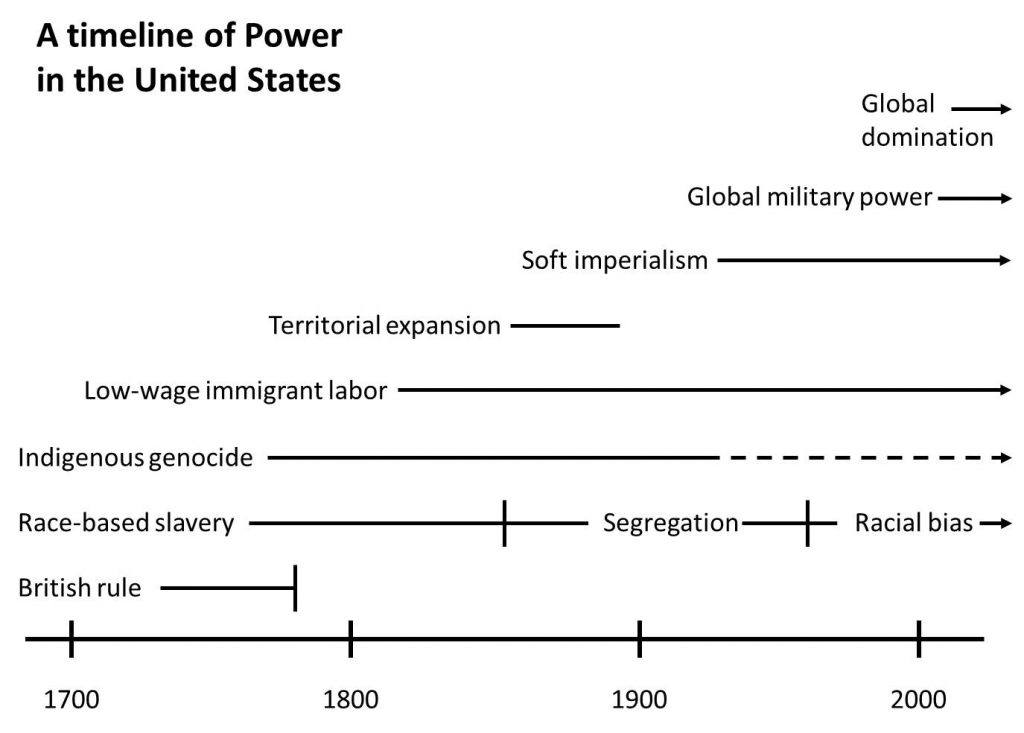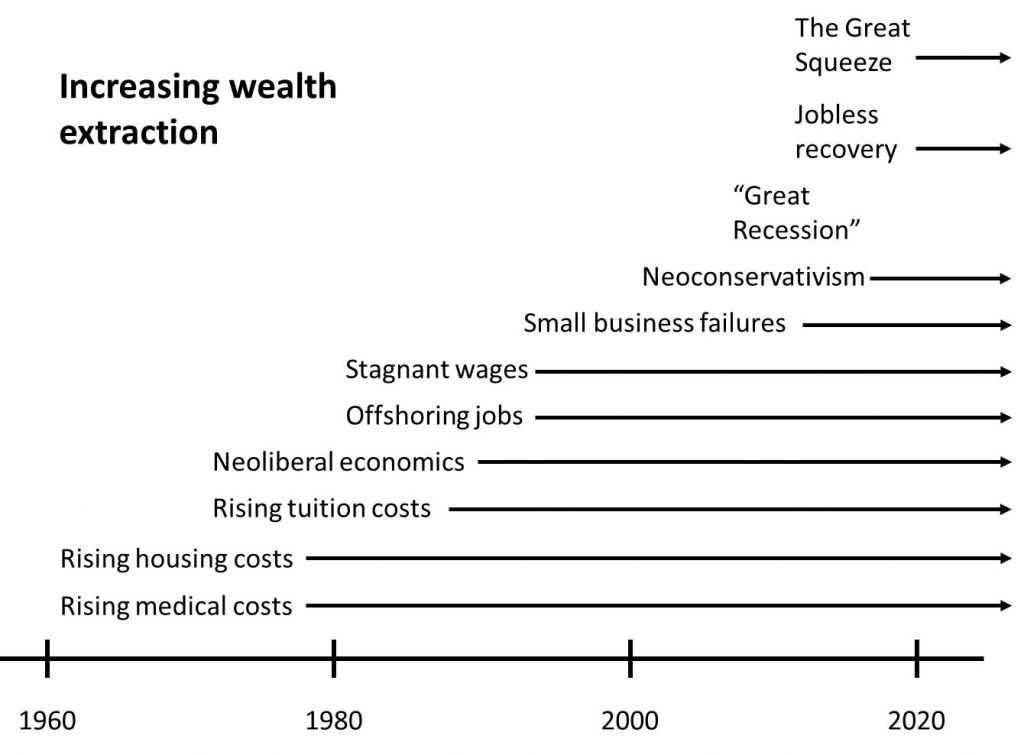Part II: Follow the Power
What is inequality, really?
Most of us feel warm fuzzy feelings when we read proclamations of human equality.
“We hold these truths to be self-evident, that all men are created equal…”
And yet we inhabit a world of mansions and trailer parks, high-rise offices and sweatshops, four-star hotels and homeless camps.
That ought to create intense cognitive dissonance, but somehow it feels normal. Such is life in a world where Power controls the stories and defines acceptable worldviews. We claim to be fighting for a more just and equal world, but “just” and “equal” are carefully defined to allow vast and growing inequalities to remain unexamined, to be viewed solely as the natural outcome of a free and fair market.
We fling hatred at each other across political divides, and yet somehow neither side ever opposes Power. That is intentional. Narratives that oppose Power are quietly and effectively silenced, cancelled, invalidated, debunked by “experts.”
It’s time we took a good hard look at this Power.
Power is unequal exchange. Any time labor or wealth is coercively extracted from one person or one nation for the benefit of others, Power is in play.
Power is not the same as wealth. It is entirely possible to become wealthy, to a point, without invoking Power – by, for example, writing a book that millions of people choose to read, or inventing a technology that millions of people choose to buy. Power enters the picture when there is no real choice; when the profit is collected in exchange for basic human needs like food, shelter, medical care, or education; or when workers are paid less than a living wage for full-time employment.
Power is a continuum, and that continuum includes both institutions that are considered perfectly normal and acceptable, and institutions that are deemed outdated and morally bankrupt.

“Hard imperialism” here refers to the globe-spanning colonialism of the British, French, and Spanish Empires in the 16th-19th centuries, while “soft imperialism” refers to the standard US foreign policy of installing/supporting puppet governments that create the same sort of impoverishment and resource extraction but under a guise of sovereignty.
Power represents unearned wealth and the systems that facilitate the transfer of unearned wealth. Although we have the unfortunate habit of counting all income as “earnings,” truly earned wealth is acquired through transactions in which both parties benefit equally. Unearned wealth is acquired through transactions in which the one who pays has no other reasonable options. It is not so much earned as it is taken.
“No one ever makes a billion dollars. You take a billion dollars.”
Alexandria Ocasio-Cortez
A history of the United States of America, perhaps more than any other nation, is a history of expanding Power.

We are a young nation, and one that has risen from conception to global domination in the span of a few human lifetimes. We have not done that because God ordained it so, or because we are especially virtuous and intelligent. We have done it because we swore an allegiance to Power, and from the Trail of Tears to Wounded Knee, from the Alamo to the banana republics, from the forests of Vietnam to the deserts of Iraq, we have showed no mercy to those people who dared to demand sovereignty and self-determination in the face of this Power.
In our commitment to growth, control, and Power, we have not placed a high value on the well-being of our own citizenry. And as we have begun to run out of foreign wealth to extract, and economic growth rates have slowed, the Power has come to bear ever harder on those on the losing end. We can look more closely at the last 50 or so years, from the perspective of economic Power.

Medical care and college tuition have been increasing much faster than wages for decades now. In many regions, housing costs have been increasing as well. The Reagan years saw the adoption of neoliberal economics – with the aim of an unrestricted global market. Coupled with the soft imperialism that had already devalued labor and currency in “developing” nations around the world, this led to a vast offshoring of manufacturing jobs. Those companies that kept US factories open had to compete with cheap foreign goods, which drove down wages and benefits.
Beginning in the 1990s, multinational corporations catabolized small businesses around the nation. Small-town hardware stores lost to regional Home Depots and Walmarts. Hometown bookstores lost to Amazon. Local coffee shops lost to Starbucks. Small farms either failed or grew to thousands of acres. And the list goes on. In all cases, jobs were either lost outright or else squeezed (longer hours, more responsibilities, fewer benefits) to remain competitive.
Following the Great Recession of 2008, the jobs that returned were primarily low-wage, and a greater proportion of work was fulfilled by “gig” arrangements: part-time, uncertain and unpredictable hours, and no benefits. Taken together, these trends have created what I call The Great Squeeze: a situation in which a majority of younger Americans are financially insecure. Many are one medical emergency away from losing their housing, and few are able to save for a down payment on an overpriced house, let alone for eventual retirement.
None of these things just happened, in the way that the weather, earthquakes, and volcanic eruptions just happen. They resulted from human decisions, and some humans purchased yachts and retired to seaside mansions as a direct result of those decisions. It is a testament to the power of Power that we talk about these things like the weather, as if we have no choice, as if there is no other option. Power controls the stories that are told, and in so doing it controls the way that we think, the way that we see the world, the problems that we focus on, the futures that we believe are possible.
It is time to confront this Power.
It is time to understand the narrative matrix.
It is time to escape from the narrative matrix.
